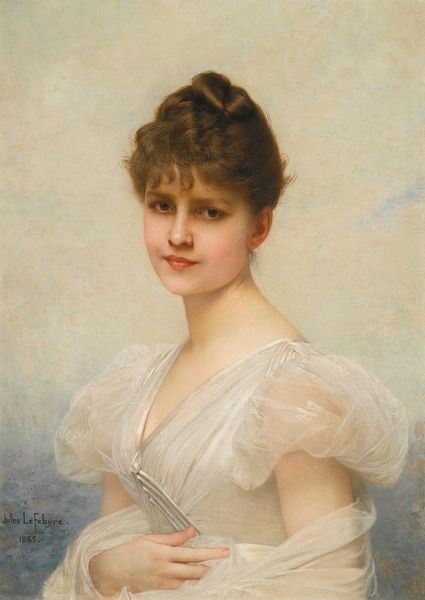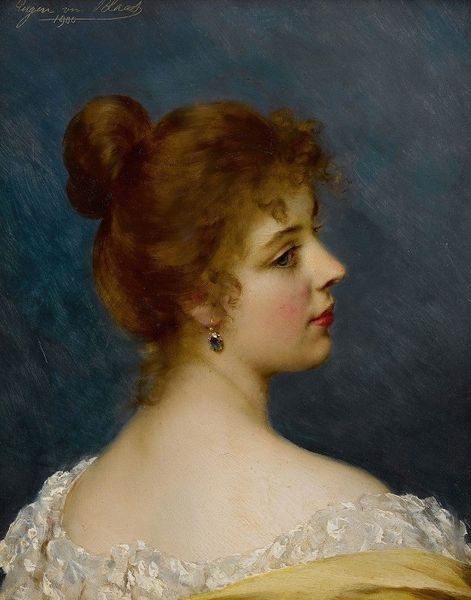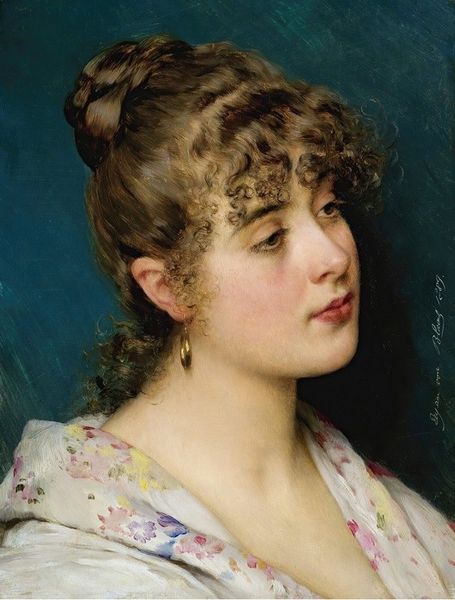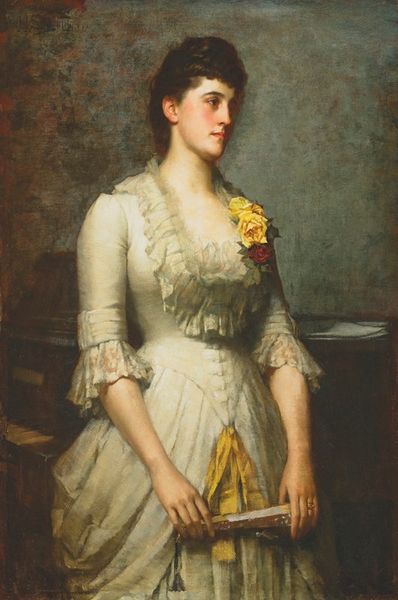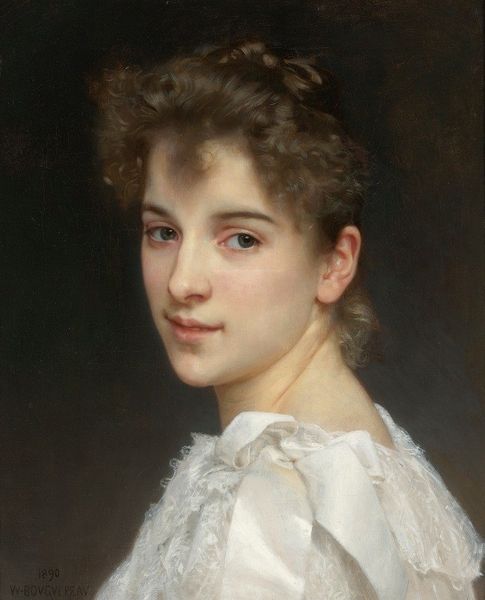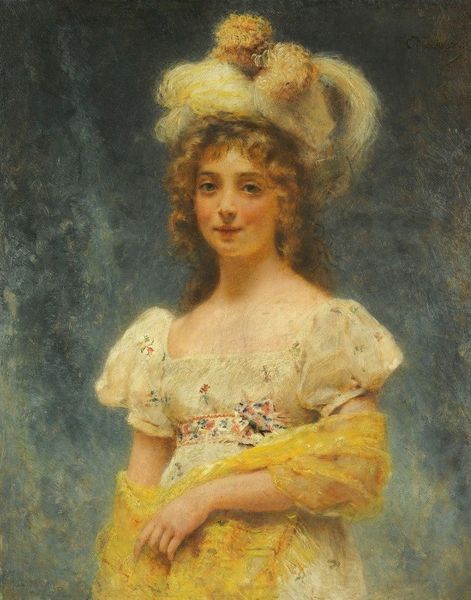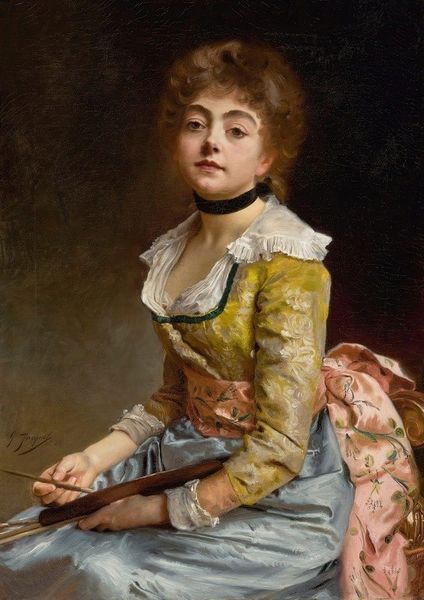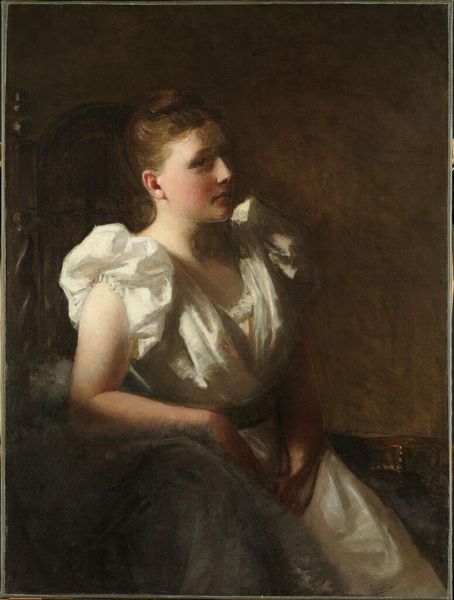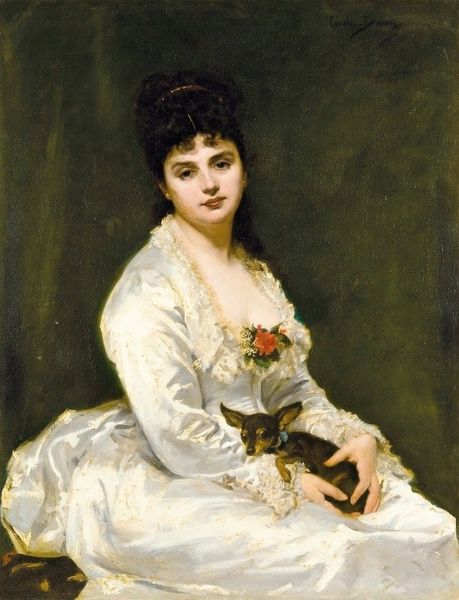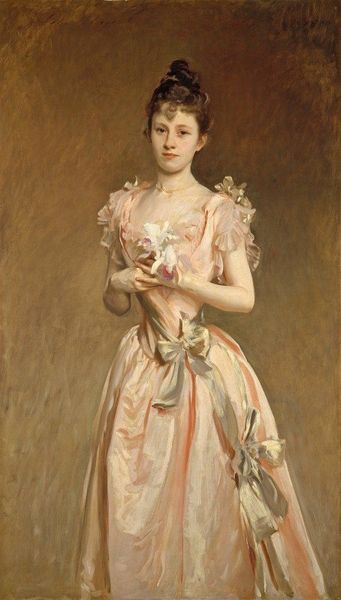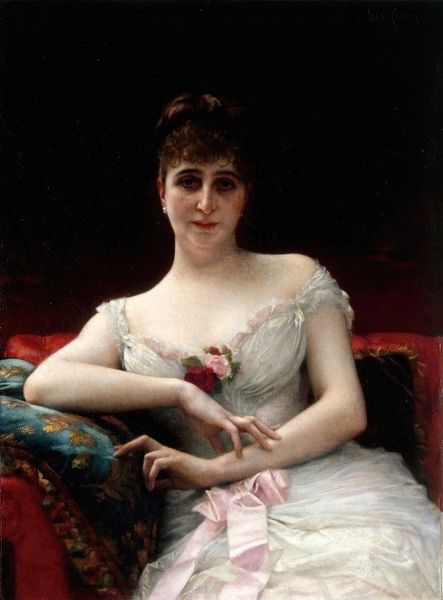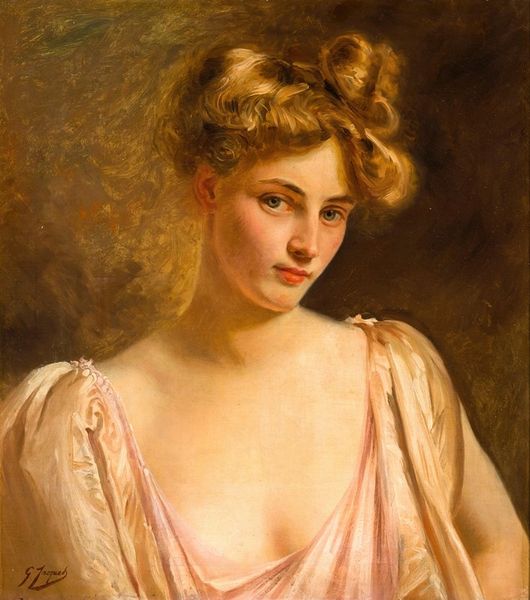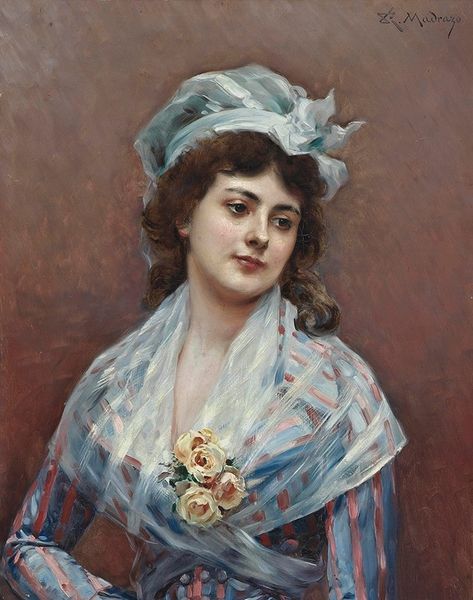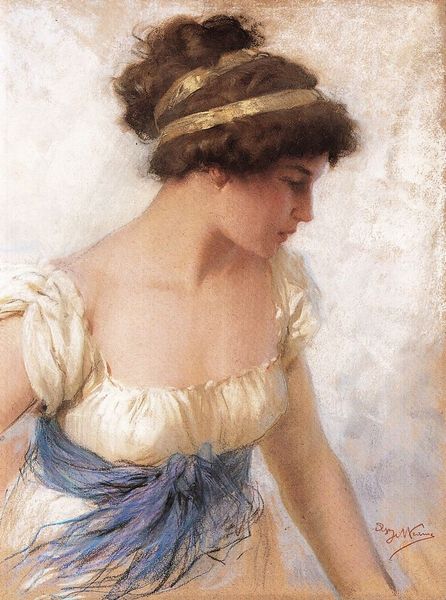
Copyright: Public Domain: Artvee
Eugen von Blaas painted this portrait of a young woman, perhaps in Venice, in the late nineteenth century. It presents itself as a moment of personal reflection, and that is a key to understanding its wider cultural context. Consider the rapid social changes of the late 1800s: rising literacy, new print media, and the growth of museums and galleries. Art became more accessible to the middle classes, who developed an appetite for intimate, domestic scenes. Artists like von Blaas catered to this demand, producing idealized images of women that invited viewers to contemplate beauty and virtue. But it is important to remember that these images also perpetuated certain stereotypes and expectations about gender roles. The woman is passive and decorative, reinforcing conventional ideas. To fully appreciate this painting, we need to examine the social and institutional forces that shaped its creation and reception. Through careful research, we can better understand how art both reflects and reinforces the values of its time.
Comments
No comments
Be the first to comment and join the conversation on the ultimate creative platform.
